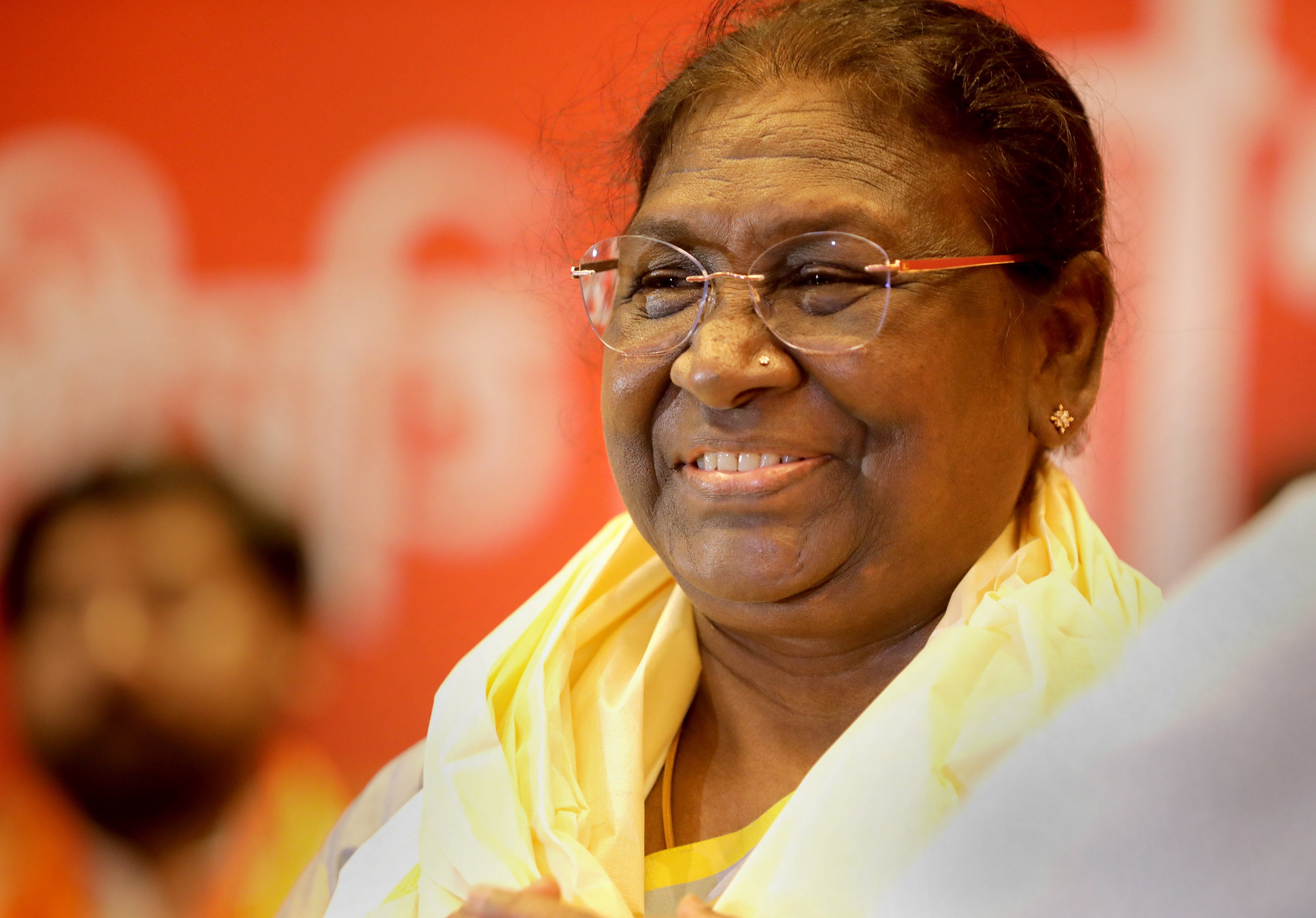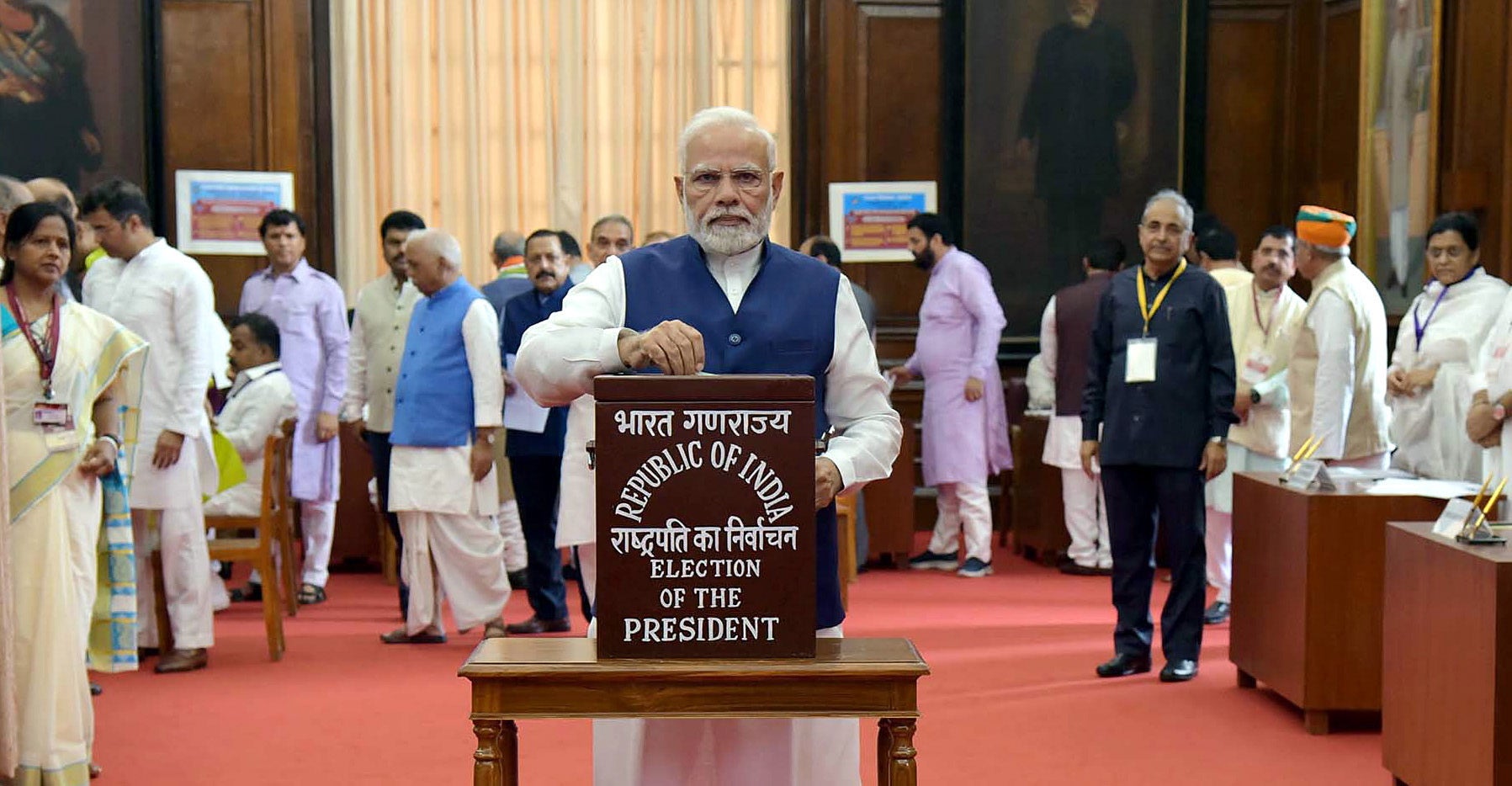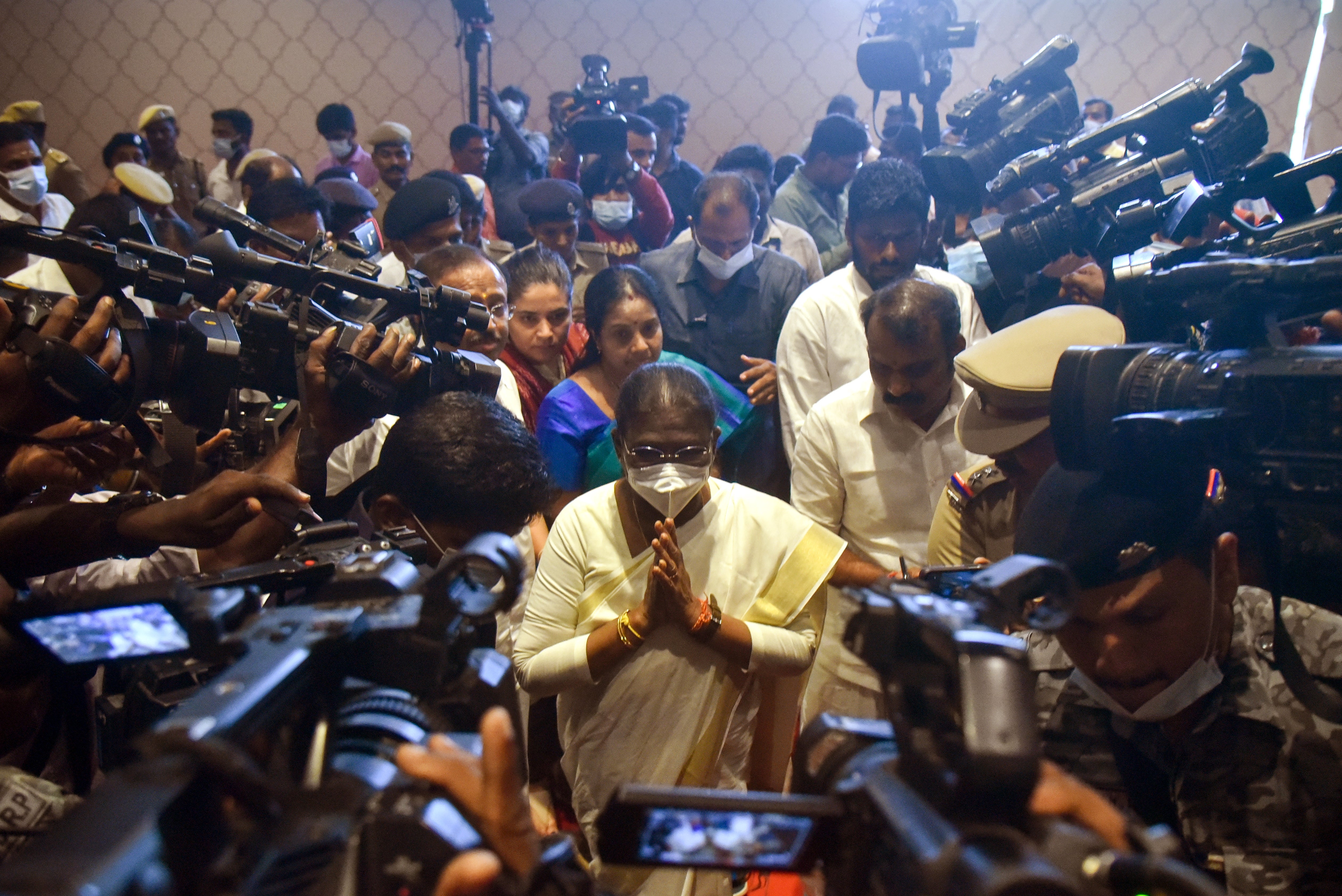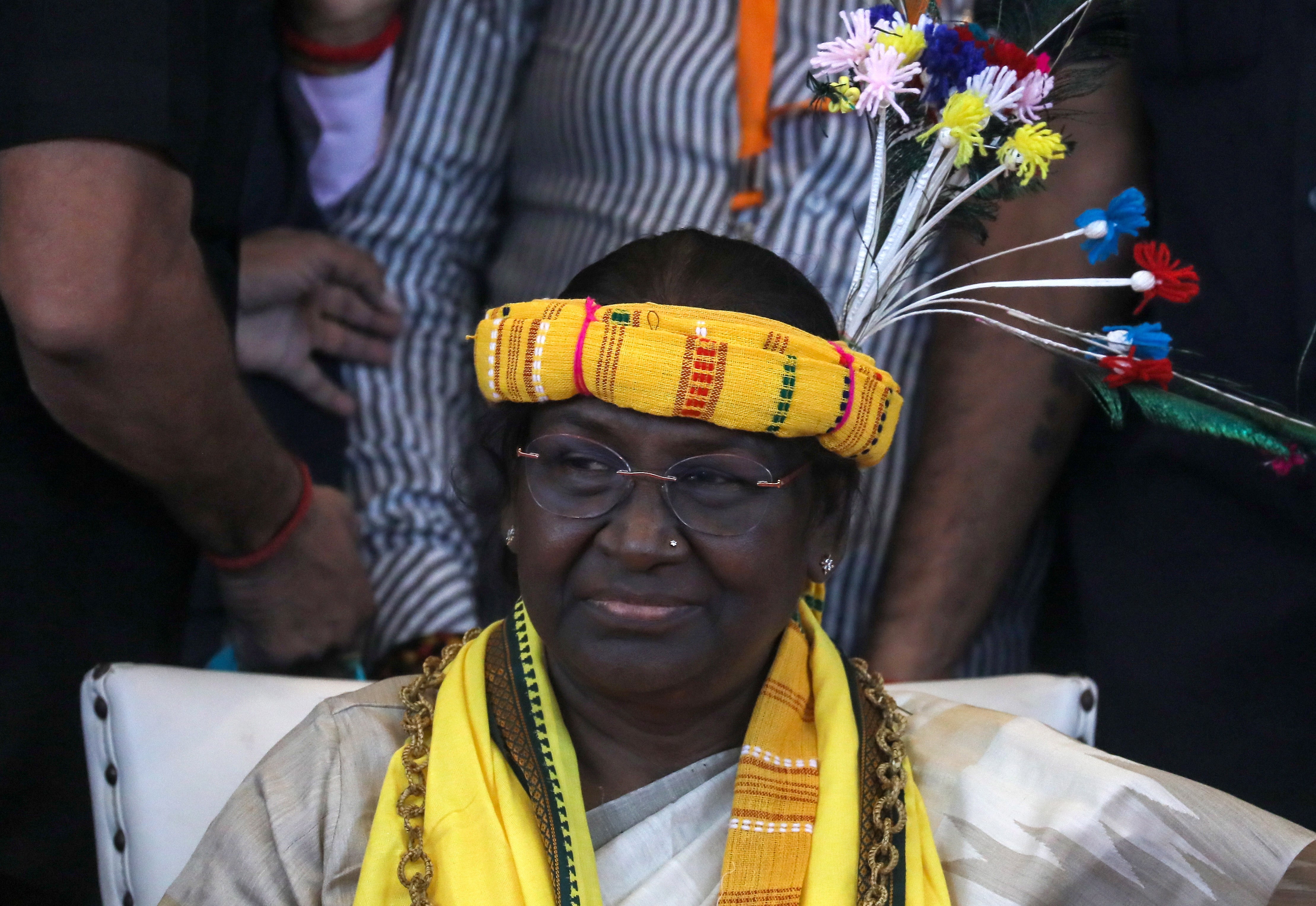Droupadi Murmu: Tribal woman from ruling party likely to be India’s next president
Droupadi Murmu is poised to become country’s first tribal president

A tribal leader is emerging to be the frontrunner in India’s presidential race as hundreds of lawmakers in the country’s parliament cast their ballots on Monday.
Droupadi Murmu has been nominated by the country’s Bharatiya Janata Party (BJP)- led coalition National Democratic Alliance (NDA) for the race to the top position in the parliament, where the Narendra Modi-led Hindu nationalist party dominates the majority of seats.
If elected, the 64-year-old would become the first tribal president of the country.
Top leaders of the country, including Mr Modi, former prime minister Manmohan Singh, and chief ministers from across the country, cast their votes in parliament on Monday.
A total of 4,800 lawmakers and legislators are expected to cast their votes till 5pm on Monday to elect the 15th president of India, replacing Ram Nath Kovind, whose term comes to an end on 24 July.
She is pitted against the opposition party’s candidate, Yashwant Sinha, 84, who served as finance minister under a BJP government before becoming estranged and quitting the party to become a vocal critic of Mr Modi.
Analysts and observers believe that Ms Murmu is poised to win the elections as Mr Modi’s party has enough seats in the federal and state legislatures to push its favoured candidate and elections are just a formality.

She is expected to receive at least 60 per cent of the votes, as other smaller parties, including Shiromani Akali Dal and Shiv Sena, have extended their support to her.
Ms Murmu, a teacher from India’s eastern state of Odisha, has previously served as the governor of Jharkhand state and represented the BJP’s state wing for “scheduled tribes” – tribal communities recognised in the constitution of India as socially and economically disadvantaged.
Mr Modi hailed her nomination and said he was “confident she will become a great president”.
Mr Sinha, the candidate put forward by a divided opposition, appealed for votes on Monday and said: “I have repeatedly said that this election is very important as it will decide the direction as to whether democracy will remain in India or will slowly end.”
In India, the president holds office for a five-year term and is chosen by an electoral college that consists of legislators in both houses of parliament and elected members of the legislative assemblies of all states.
The role is largely ceremonial as the prime minister is the head of the government and holds the executive authority.
But the position becomes significant in times of political crisis or uncertainty, such as a hung parliament, when the office assumes greater power.

Ms Murmu belongs to one of largest tribal groups in the country, the Santhals.
She was born in 1958 in Baidaposi village of Mayurbhanj district to a father who was a village council chief. Ms Murmu is believed to have become an example for many after her ambition for studying saw her become the first girl in her village to study in college.
She completed her education at the Ramadevi Women’s College in the state capital, Bhubaneswar, after a local lawmaker endorsed her education after looking at her resolve and enthusiasm for studies.
Journalist and activist Nigamananda Patnaik, who has known her from her early days, says she was just a girl when she ran up to a visiting lawmaker delivering a speech on a stage and waved her school certificate, urging him to help her with her studies in Bhubaneswar.
She went on to serve as a clerk for the Odisha government and later as a junior assistant in the irrigation and energy department till 1983.
She then returned to her hometown in Rairangpur and took up a teaching job before her political career kicked off in 1997 after being elected as a councillor in the local polls in Rairangpur.
She continued with several political stints before her personal life suffered a setback and she lost her elder son in mysterious circumstances in 2009, followed by the deaths of her second son and her husband.
She bounced back to politics in 2015 when she was appointed as the first female governor of neighbouring Jharkhand state and continued her six-year term till July 2021.

After her nomination for the top post last month, Ms Murmu said she was surprised and she got to know about her nomination from news reports.
“I am surprised as well as delighted. As a tribal woman from remote Mayurbhanj district, I had not thought about becoming the candidate for the top post,” Ms Murmu told reporters at her Rairangpur residence.
The votes from Monday’s election will be counted on Thursday, and the oath-taking ceremony will take place on 25 July.
Next month, Indian lawmakers will cast votes to elect the vice-president of the country as parties have started fielding candidates.
Join our commenting forum
Join thought-provoking conversations, follow other Independent readers and see their replies
Comments
Bookmark popover
Removed from bookmarks